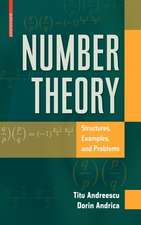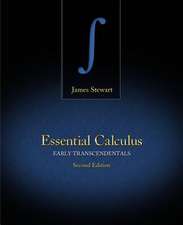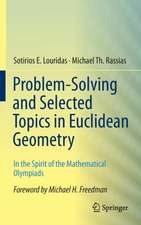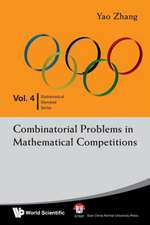Calculus: Early Transcendentals
Autor James Stewarten Limba Engleză Foi volante – 4 feb 2015
| Toate formatele și edițiile | Preț | Express |
|---|---|---|
| Hardback (3) | 540.26 lei 22-36 zile | |
| CENGAGE LEARNING – 2018 | 540.26 lei 22-36 zile | |
| Cengage Learning, Inc – 14 feb 2008 | 574.06 lei 22-36 zile | |
| CENGAGE LEARNING – 20 dec 2007 | 590.72 lei 22-36 zile |
Preț: 985.15 lei
Preț vechi: 1279.41 lei
-23% Nou
Puncte Express: 1478
Preț estimativ în valută:
188.50€ • 197.35$ • 155.98£
188.50€ • 197.35$ • 155.98£
Carte indisponibilă temporar
Doresc să fiu notificat când acest titlu va fi disponibil:
Se trimite...
Preluare comenzi: 021 569.72.76
Specificații
Notă biografică
The late James Stewart received his M.S. from Stanford University and his Ph.D. from the University of Toronto. He conducted research at the University of London and was influenced by the famous mathematician, George Polya, at Stanford University. Dr. Stewart most recently served as a professor of mathematics at McMaster University and the University of Toronto. His research focused on harmonic analysis. Dr. Stewart authored the best-selling calculus textbook series, including CALCULUS, CALCULUS: EARLY TRANSCENDENTALS and CALCULUS: CONCEPTS AND CONTEXTS, as well as a series of successful precalculus texts and college algebra and trigonometry texts.
Descriere
Descriere de la o altă ediție sau format:
This text embodies the broad principles of calculus reform - conceptual understanding motivated by real-world applications and the application of the rule of four in numerical, visual, algebraic and verbal interpretations.
This text embodies the broad principles of calculus reform - conceptual understanding motivated by real-world applications and the application of the rule of four in numerical, visual, algebraic and verbal interpretations.







